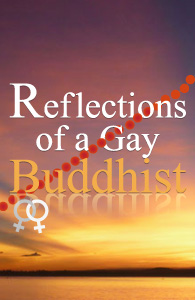I’m sorry to be a wet blanket but Tantra is not about sex at all. H.E. Tsem Tulku Rinpoche has explained that in ancient times, tantra was very secret. It still is today but then, it was even more restricted – so only the high initiates were engaged in it. Buddha's sutra and tantra developed because of the culture of that time. In olden days, the rule of law was fairly inconstant. When rulers changed, the laws changed. The only laws which remained constant were those imposed by religion. Religious practices became beneficial as a moral watchdog. There was a deeper spiritual meaning than just for establishing an ethical society, which was a side benefit of spiritual practice. However, this deeper meaning was often forgotten while the focus on the rules remained.

In those days, there were many rules around religious practice; you couldn't have sex near your Guru (which kind of made sense), no anal or oral sex or have sex during a full moon (which kind of didn’t make sense) etc.
Buddha found that these 'rules' brought people a lot of suffering. People were focusing more on the rituals rather than the meanings, motivation or aspirations of spiritual practice.
So when Buddha wanted to teach, he introduced the sutras, which were focused on the EXTERNAL. It was designed to appeal to the larger group who liked external rules. Up until today, Asians are very focused on the external, such as on etiquette and ‘face’.
The lower tantras and sutras have strict rules - these sutras are to be chanted at this time, practitioners can only eat this at this time, and what foods to eat or not to eat etc.
In the higher tantras, however, there are less rules as the focus is on the INTERNAL.
True tantric practitioners see you as you are. Rinpoche said that the immediate, not ultimate, objective of tantric practice is to 'blow your mind about what is right and wrong'; to blow all your concepts away to make your mind let go of what should or should not be.
Our minds are so fixed. Even though I always prided (yes, the ego has landed) myself on being open minded, my girlfriend pointed out to me the other day that I was not open minded because I was judging and felt superior to those who I thought was closed minded. Of course I didn't like it at the time, but when I contemplated on it, she was right.
Rinpoche added that the way we think things should be has made us depressed, lonely, greedy, angersome and jealous. All these emotions arise not from the object but from the subject and our subjective perception of the object. This is simply illustrated by comparing the perceptions of homosexuality at different times. In ancient Greece and Renaissance Italy, homosexuality was accepted and widespread, however, everything changed when Catholicism became a dominant force. Same subject, different perceptions. And let’s hope the perception continuously evolves for the better.
What concepts do we have to blow away, we may ask?
That we don't have to be sneaky to be happy.
That we don't have to hurt others to be happy.
That we don't have to protect ourselves to be happy.
then ultimately,
That we don't have to cherish ourselves to be happy.
Cherishing ourselves means that we place ourselves as more important than anyone, and our own needs as our priority. In doing so, we usually trample on others’ needs and sensitivities, whether intentional or not. In western psychology, we are taught that to be happy, we should focus on our own needs. However, we sometimes heed this advice so much that it is often to the detriment of others.
Buddhist philosophy is quite the opposite. To be happy, Buddhists focus outwards – on others, because making others happy leads to our permanent happiness. When we start to go to that level of selflessness, tantric powers arise. These tantric powers can then put to use to help others.
From tantric practice, we will develop great awareness, alertness, the ability to see things clearly because of great care. This will help us avert problems for others and to not burden others.
Tantra is considered the faster path because it's more direct. Tantric practice is a direct method where a qualified Guru of the Tantra will surface all our emotions; anger, jealousy, lust, animosity, happiness.
Out of compassion, the Tantric Guru will press all our buttons to see who we really are. The Guru has great compassion because he has no fear for what we usually hold dear - our reputations. Gurus put themselves in the line of fire because they want to help those who may not want to help themselves. Not many people like to hear criticism, constructive or not. Not many people like to change, whether warranted or not. And we usually lash out at the very person who is trying to help us.
We now live in degenerate times and for me, at least, there's no time left for the slow path. I have humungous fears. A monumental ego. So I'm trying to chop it down as fast as I can before my Guru gets his enlightened hands on it!
Sharon Saw is a writer / editor at Kechara Media & Publications, which focuses on publishing the teachings of H.E. Tsem Tulku Rinpoche, a high incarnate Lama of the Tibetan Buddhist tradition. A selection of Buddhist and non-Buddhist related books from Kechara Publications is now available on Fridae Shop. You can follow Sharon on Twitter. This column will appear every other Friday.
